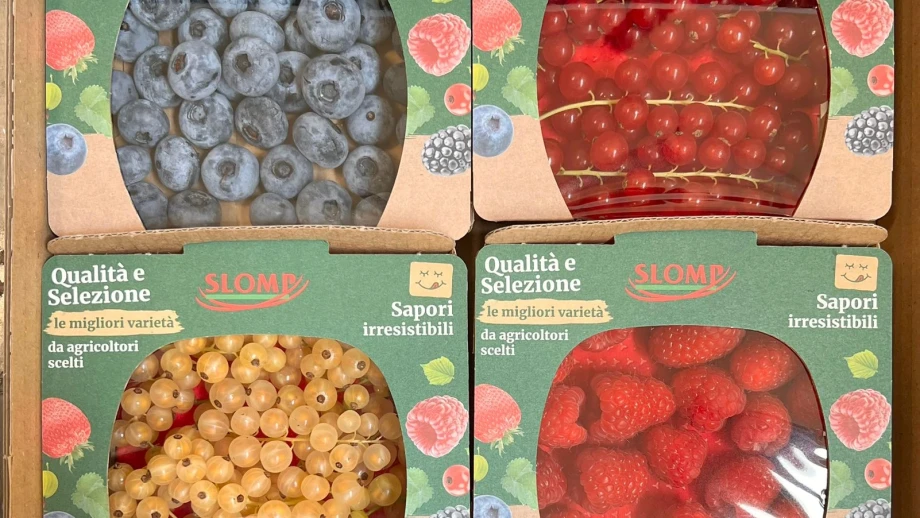It's been exactly 5 years since the 'Mirtillo Business Day' in Bologna, which brought together the leading national and international blueberry experts in the presence of key industry players, including Slomp, a company founded over 60 years ago in Lavis, Trentino. While their specialization in berries spans 14 years, Slomp actually started introducing berries to the products sold and distributed to supermarkets as early as the 1990s.
“Since 2010, we have been working exclusively with berries, and especially in recent years, we have seen an exponential growth in interest in blueberries. As for us, the growth in blueberries has been steady, especially over the past three years. This growth has been in the double digits in terms of volume, with peaks reaching up to +30% year on year."
"Blueberries grew at the same pace last year as in previous years, despite 2023 being marked by a decline in consumption due to inflation." For Nicola Slomp and his family business, blueberries are the flagship product: "Today, blueberries account for 35-38% of the volumes we handle, followed by raspberries at 23-24%, and then strawberries, blackberries, and others."
 Nicola Slomp
Nicola Slomp
Responding to demand means looking beyond domestic products
"We started by focusing on local products, reaching as far as Veneto. For us, the turning point came in 2016–2017 when we realized – as Nicola Slomp, who manages administration and development for the family business, explained – that demand was growing rapidly, and local supply wouldn't be enough."
We began adding new, younger suppliers to our long-standing partners. Consumers and the Ho.Re.Ca. sector were looking for out-of-season blueberries, which led us to look beyond national borders."
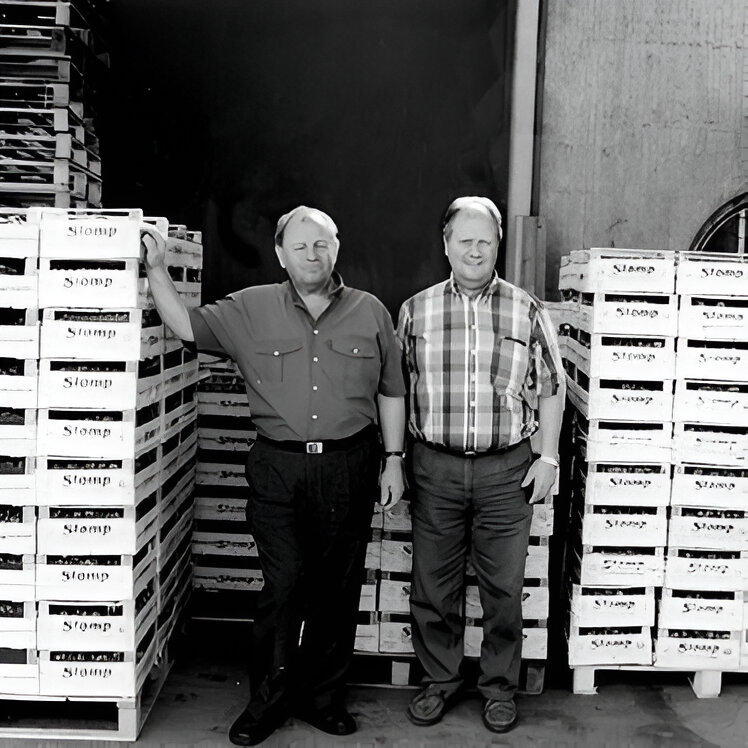 Founders Renzo and Luciano Slomp
Founders Renzo and Luciano Slomp
Today, Slomp relies on a network of over 100 suppliers, 80% of which are local farmers delivering during the Italian season, from June to August. Compared to 5 years ago, Nicola Slomp has observed a significant shift in consumer attitudes: "Whereas foreign products were once demonized in favor of locally sourced goods, today, consumers are more open."
While they still favor Italian products, we've noticed that as long as all quality assurances, certifications, and analyses are provided, it's possible to complement Italian products with foreign ones. This allows us to maintain a virtually complete calendar. As for blueberries, we now cover 365 days of the year without any gaps. Consistency is crucial for supermarkets," he explained.
From North Africa to Peru, Eastern Europe to Spain, different origins follow each other on the calendar: "We are now looking with interest at new producing countries, such as those in Central Africa. However, for now, we are only observing and do not have suppliers from that area yet."
Consumers ask for detailed information
On the consumer side, Nicola Slomp notes: "They are attentive to both the aesthetic and organoleptic quality. Nowadays, they want to be informed, to know more, they seek direct contact with us, they write to us. Over the last 5 years, we haven't focused much on marketing, instead choosing to concentrate on production and meeting growing market demand."
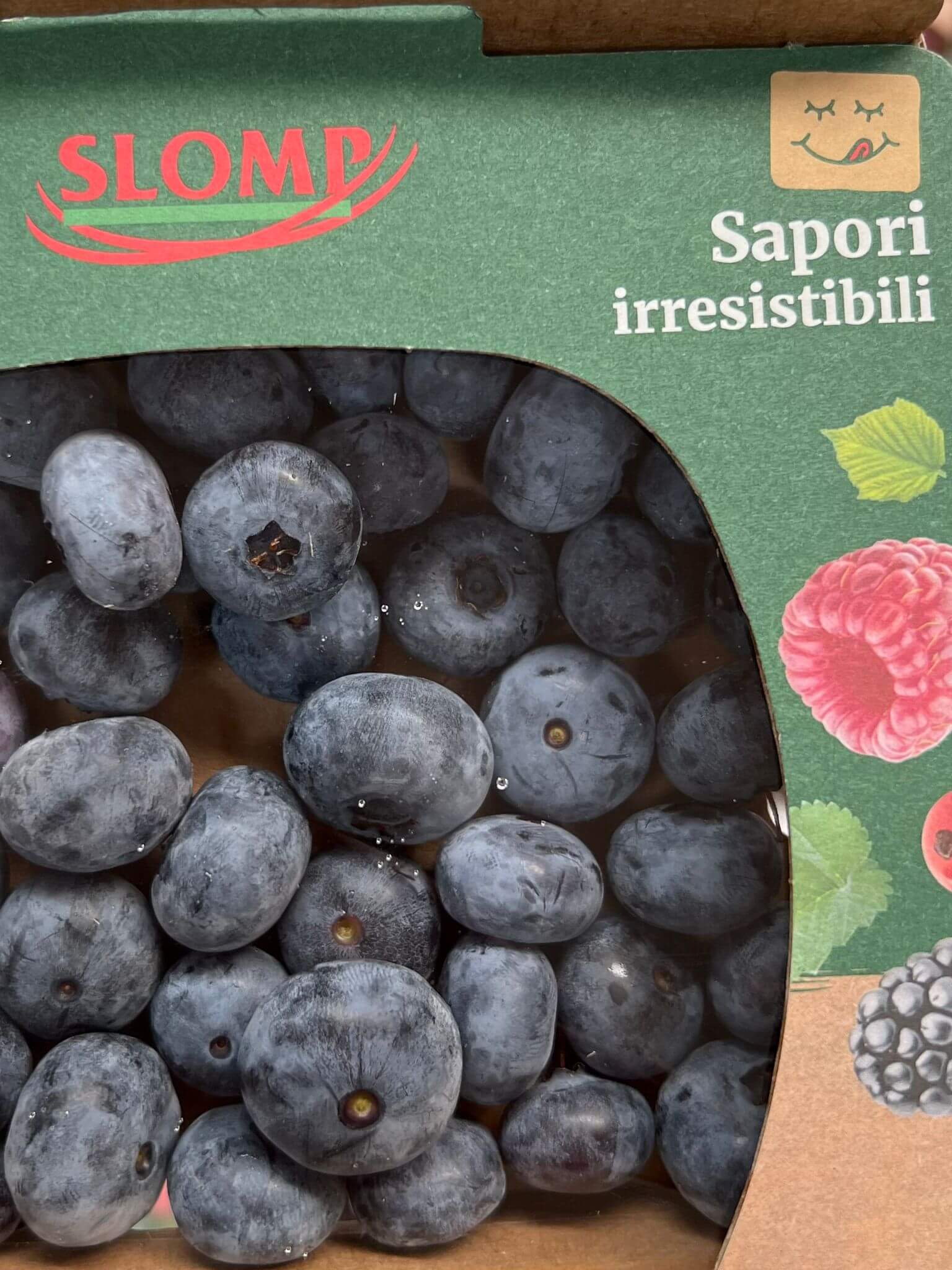
Looking ahead, we plan to do more promotion, not just social media advertising, but also establishing direct contact with consumers and buyers. Recently, for instance, we conducted a sampling event at a retail store and were surprised by the level of interest. We spent the entire day answering questions."
Coordination and organization are key to maintaining quality
Slomp's turnover has grown steadily, year after year, for a decade, and blueberries undoubtedly deserve part of the credit: "There are many factors that contribute to maintaining product quality. We have invested heavily in machinery, packing lines, weight control systems, and temperature and atmosphere-controlled storage rooms. We also perform sample checks for Brix levels and fruit firmness."
"In the future, we might consider adding a calibration machine with optical analysis capabilities. For blueberries, and for all berries in general, optimizing warehouse movements is crucial. Qualified staff are very important, and it is essential to be fast, well-coordinated, and to ensure that the product stays in the warehouse for as short a time as possible due to its short shelf life. It’s a matter of both internal logistics and the supply chain."
In terms of supermarket demands, Nicola Slomp has identified a trend toward larger packaging sizes: "Five years ago, orders were mainly for 125-gram packs, but now we handle various sizes, including 300 grams and 250 grams. Flexibility has been key for us. We offer 15–20 different packaging sizes, and we use PET, rPET, and are currently exploring wood pulp solutions."
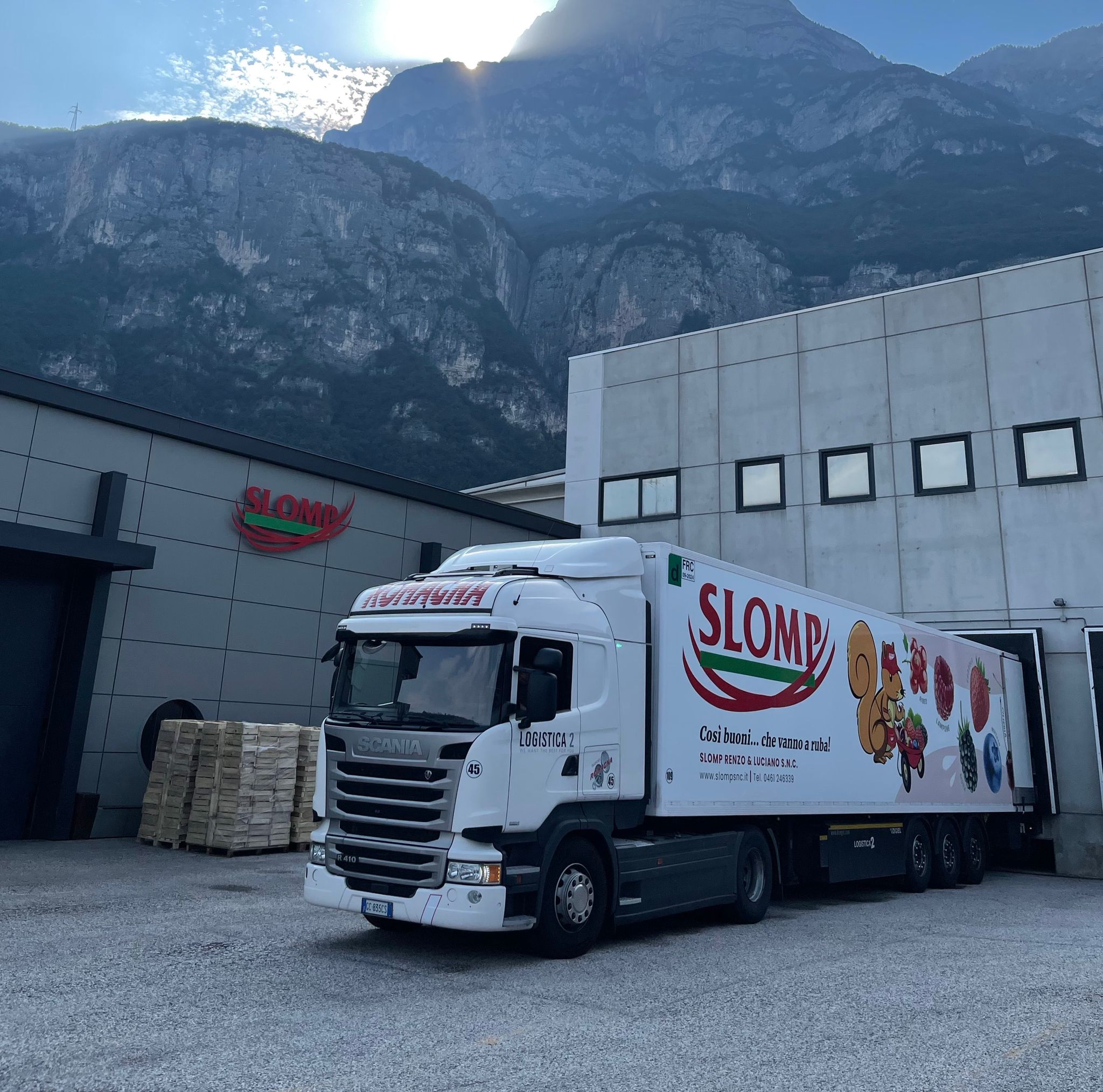
As consumers continue to appreciate blueberries and demand continues to grow, Nicola Slomp expects that more operators will try to enter the market in the future.
"In terms of new varieties, we haven't seen much change in Italy. However, South American countries are trying to cover delicate periods in the calendar when one origin ends, and there is no immediate successor. For example, in September, South American countries are trying to enter the market earlier to fill this gap."
Blueberry season 2024 in Italy is expected to be challenging
The blueberry season in Italy has just ended. Although it wasn't as successful as the previous one, the overall outcome was still positive, according to Nicola Slomp: "This summer was challenging and difficult both in terms of planning and temperatures. Weather can be very challenging. High humidity, unusual heat, and cold spells, in general, can ruin an entire season."
"This year, we had to do a lot of sorting, but we can still say it was a good season. We are seeing continued price fluctuations, and this applies regardless of the product's origin. Prices remained high, contrary to predictions."
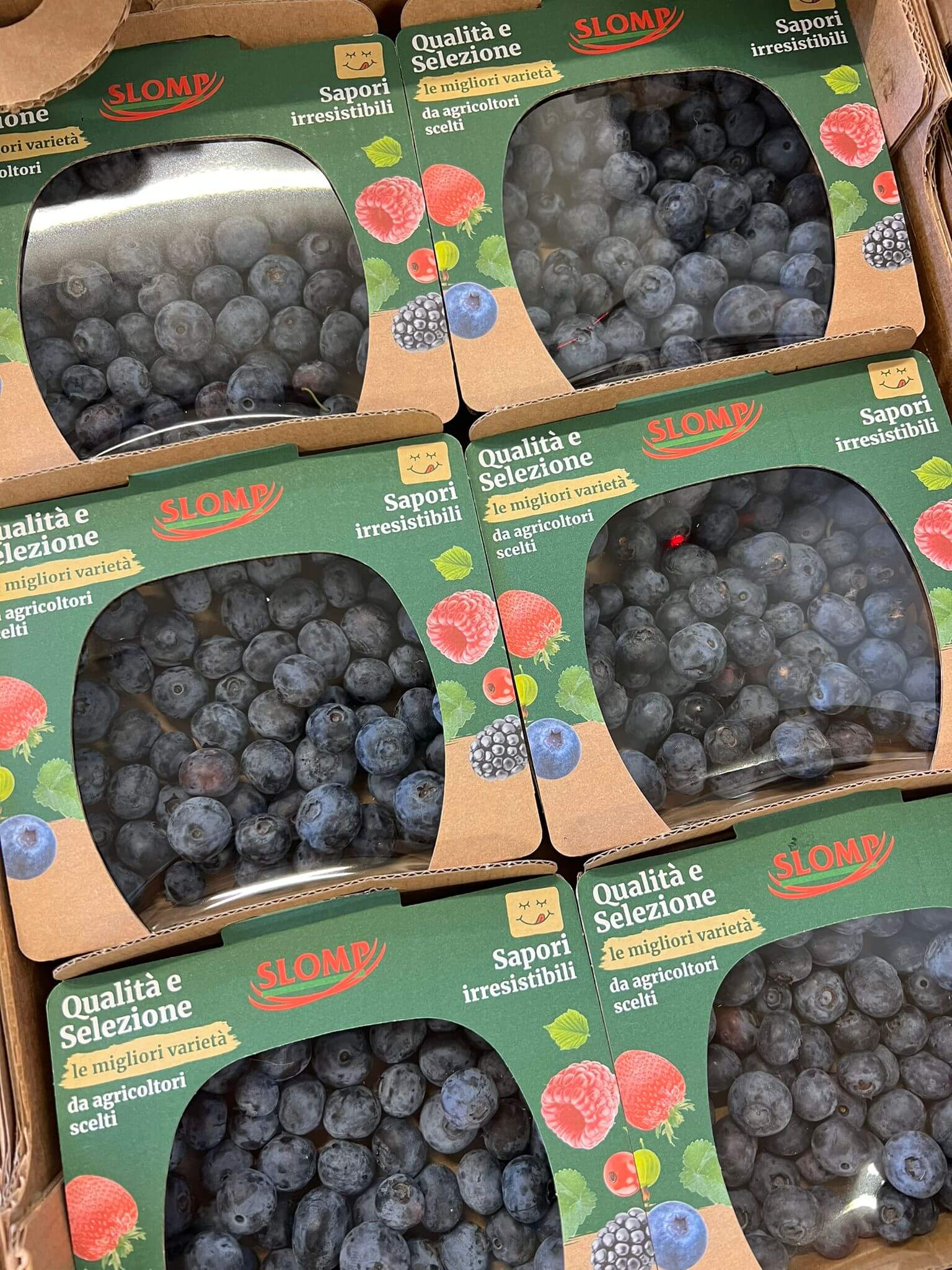
Barbara Righini





